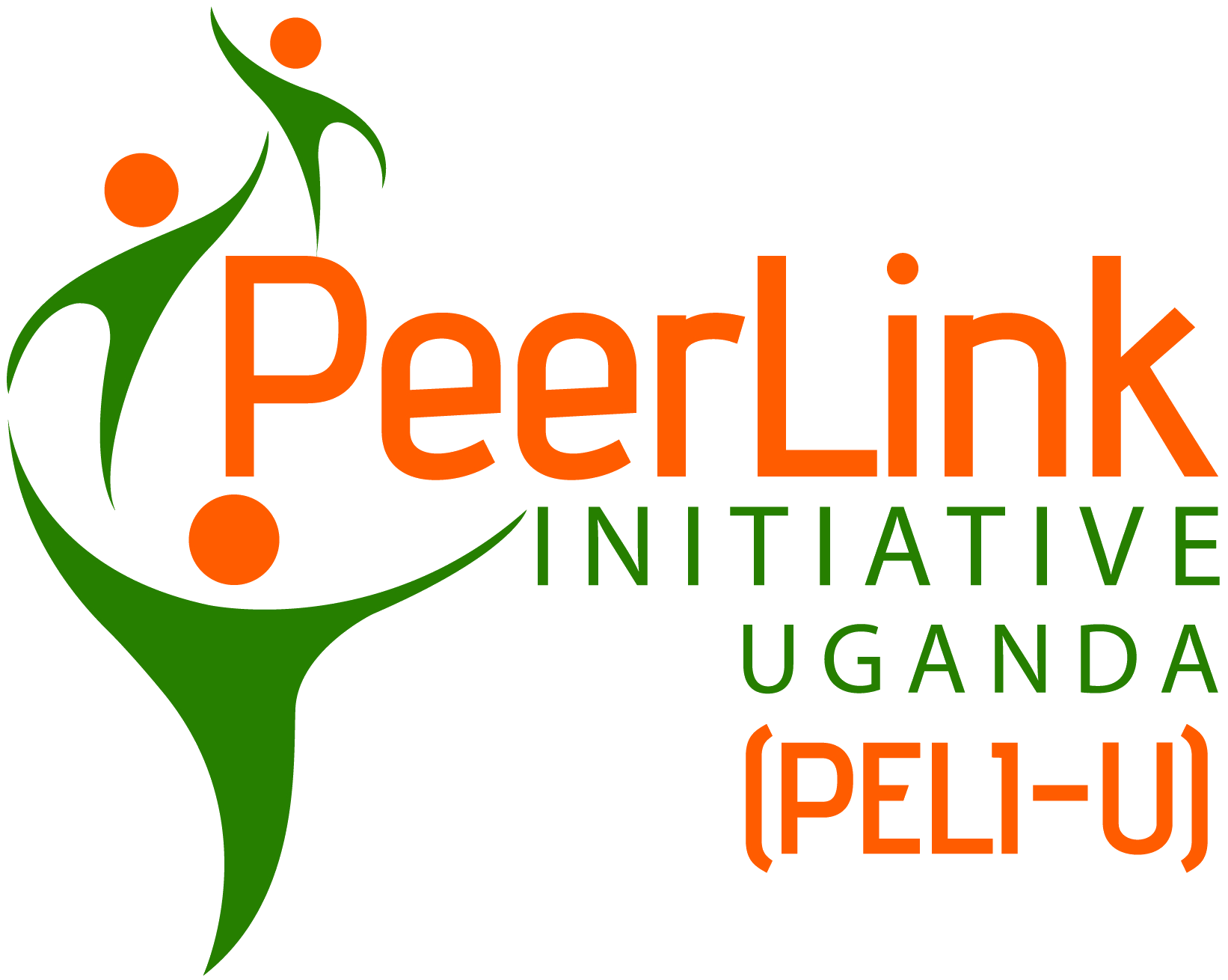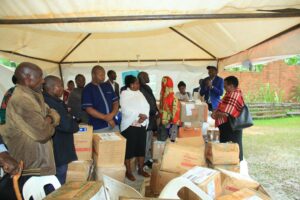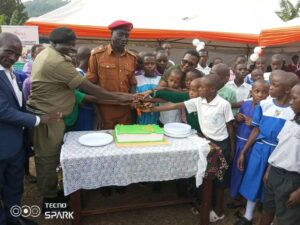Sustainability of Community Based Libraries
The first step towards a sustainable library is sustainable thinking Rebekkah Smith Aldrich, 2018.
Community libraries
Provide multiple services to communities; access to reading materials, reading space, information communication technology (ICT) tools and equipment, early child care and development activities, training for teachers, health education and information, cultural , sports and recreation services.
Most community libraries in Uganda have been set up by passionate individuals committed to contribute to efforts to improve the quality of education.
A good number of the founders are not trained libraries. We have some trained professional librarians among founders that provide a supportive and training environment.
A number of libraries are housed in individual donated spaces, some in rented space, others in community structures (schools, health centers, religious institutions, households etc).
Community libraries face a challenge of limited number of books, lack book shelves, reading tables, mats chairs, some are housed in very substandard structures. Some libraries lack libraries lack electricity. There is a challenge of poor reading abilities of leaners etc
Nyarushanje community library & empowerment center

Nyarushanje Community Library and Empowerment Center is found in Nyarushanje Subcounty, Rubabo County, Rukungiri District.
Started by PELI-U a community rooted non government organization that works through a whole community based approach and focuses on women children youths and community members using a community Library model.
Started in 2013 with 200 books from the founders son, his friends, friends and other well-wishers. Today we have over 20,000 books and we have supported the setting up of 16 community based libraries and 12 new libraries are in the pipeline.
A member of Uganda Community Libraries Association (UGCLA)
Services offered

Education support and literacy promotion
a)Reading materials provision
b)Reading space provision
c)School based reading activities (implementation of reading hour, stakeholder sensitization)
d)Spelling competitions and book review
e)Support the setting up of community based libraries (satelitte libraries)
f)Library scholarships
g)Children reading activities (read and dance, read and play)
h)House hold based reading activities
i)Digital literacy and content creation sessions for primary school teachers
j)Radio based literacy promotion sessions
Skills Development & Livelihood

a)Technical and vocational skills development training (tailoring, ICT, catering and baking, cosmetology)
b) Business enterprise development training for youth, women, teachers, religious leaders and households.
c)Training households in good farming practices
d)Provision of seeds (beans, maize)
e)Farmer support visits
Sexual reproductive health
We provide sexual reproductive health education sessions for youth and children, provide hygiene and sanitation materials and tool kits, organize girls SRH talks, annual youth health camp, dialogue sessions between youth and health service providers.
Growth over years
Supported the setting up of functional 16 community based libraries (Nyarushanje, Nyabushenyi, Bwanga, Kisiizi, Burora, Kyaruhotora, Ihunga, Bunono, Kabuga, Kayanga, Ruyonza, Ndago,Kikulu, Kwata, Komamboga & Kashenshero). 12 from Nyarushanje Subcounty (9 Parish based, 3 village based, 3 libraries from Kampala District (LC 1 level), 1 Town council based – Kashenshero Town Council, Mitooma District
12 new community based libraries opening soon (space identified, dialogue sessions ongoing (Rukungiri District, Rukiga District, Rubanda District, Bikurungu Town Council, HIA-TEC Matugga, Ngategize Leadership Academy-Nyabushabi, Kabale, Nalugala – Entebbe, Kalisizo Community Laboratory and Library – Kyotera, Omolokony – Kumi, Kabaare- Isingiro, Rukoni- Ntungamo)
Current sustainability measures
Community engagement – a result of many years of continued dialogue and engagement.
24 Community based volunteer library coordinators who run the 15 community based libraries
Most of the satelitte libraries are housed in community donated spaces.
Working with youth volunteers
Nyarushanje Subcounty has provided us with land through which we are making bricks to construct Nyarushanje Community Library.
Implementing household based reading activities and empowering parents and care takers to spearhead reading at household level
All the above is still a drop in the ocean and sustainability keeps us awake
Sustainability
Sustainability is what keeps me awake I guess just like all founders of community libraries
Why sustainability?
How do we ensure that community libraries live beyond the founders.
We need to integrate sustainability in all we do so as to get a road map of what happens
a)At the end of funding for the libraries that receive funding
b)When founders die
c)When founders are sick and are no longer productive
d)When founders get old
e)When they lose interest
How do we secure sustainable funding
Sustainability Dialogue should focus on;
a)Sustaining- Access to reading and learning materials
b)Library space
c)Staff: ( Library staff)
d)Need to focus on Institutional Strengthening
e)Lobby and advocate for a supportive environment for reading.
f)Strengthening partnership and collaboration with schools
Sustaining- Access to reading and learning materials
Networking and create partnership with potential book donors – Uganda Community Libraries Association (UGCLA), Enjuba spelling bee-(Africa Book Project), National Library of Uganda, Book Aid International, Reading A –Z online resource, African story books, Book shops, publishing companies individual donations, friends, relatives and well-wishers etc
Document indigenous oral literature, turn libraries into cultural museums
Venture into writing and create local content – books in mother tongue, writters clubs
How do we sustain library staff?
This is still keeping most of us community library founders awake
a) How do we ensure we get stable library staff professional yet we do not have enough funds to pay them?
b) How many CL have paid staff?
c) How much do we pay them?
d) How much are librarians paid in Uganda?
e) What is our salary structure as community libraries?
Lets keep brainstorming where do we get funds to pay librarians?
Can a miracle happen through the local government? Through the Subcounty structure to support librarians for community libraries
Can we get community members to volunteer as librarians in our communities?
Can we attract students in S.6, S,4 and University vacation to volunteer as librarians?
Can we attract community based volunteer library coordinators?
Sustaining Library space
A number of community libraries are in rented space. This is difficult to sustain. Some shifted to smaller rooms during the lock down and some are on the verge of closing.
We need to reflect seriously on how we can secure permanent space for our community libraries.
How do we secure community donated space, how do we secure land and resources to construct community libraries?
We need to build partnership with the community, engage with existing government structures, (local government structures, religious institutions, health centers, LC 1 offices, schools etc) as possible library spaces
Document our work very well and share with key stakeholders
Improve how we capture data – strengthen M & E
Professional librarians, UGCLA Leadership, National Library of Uganda management to support community libraries on data capture and recording of library users/case studies
Need to focus on Institutional Strengthening
a)Build systems internally.
b)Lobby for permanent free space
c)Lobby and advocate for paid librarians- partners with Sub counties, Districts, Public Libraries Etc.
d)Intentional partnership and collaboration with existing structures
e)Building capacity of community members, stakeholders etc
Lobby and advocate for a supportive environment for reading
a)Reading promotion Initiatives and capacity building for teachers, head teachers, parents.
b)Influence policy planning and budgeting
c)Schools integrate reading in school schedule, library hour
d)Lobby schools PTA & Board to come up with a budget line for procurement of books / set up school based library/reading space.
e)A library in every village . How can we contribute to achieving this vision as UGCLA members?
•
Strengthening partnership and collaboration with schools
a)Follow up implementation of library hour in schools.
b)Follow up set up of libraries in all schools in our community, work to ensure schools have library space, library teacher and library prefect ,
c)Provision of books during school reading outreaches,
d)Capacity building for teachers, head teachers and school management committees, /PTA members
Thank you so much
Olivia Mugabirwe
Founder Nyarushanje Community Library and Empowerment Center
+256782728243




